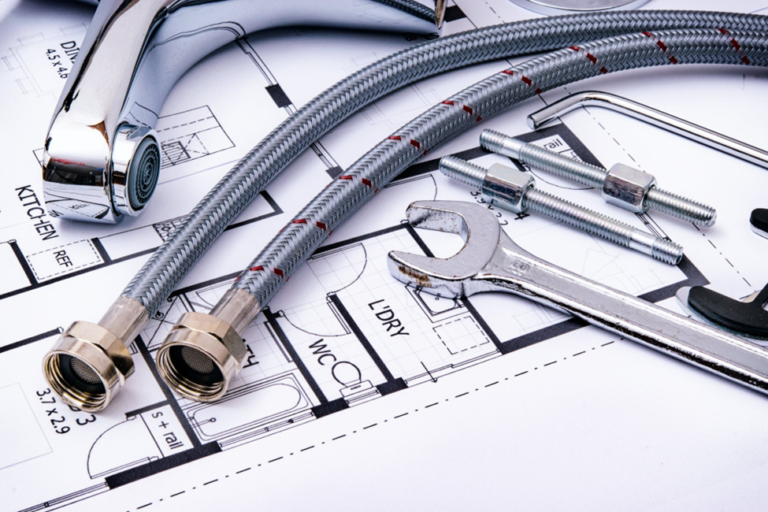The Importance of Home Remodeling Permits: A Comprehensive Overview
Home remodeling is an exciting journey that allows you to transform your living space into the dream home you’ve always envisioned. Whether it’s a kitchen renovation, a bathroom upgrade, or a complete home makeover, the prospect of a new and improved living space is undoubtedly enticing. However, in the midst of this excitement, it’s crucial not to overlook a vital aspect of the process: home remodeling permits.
In this comprehensive overview, we’ll dive deep into the importance of home remodeling permits. We’ll explore what permits are, why they matter, and how they can benefit you and your home renovation project.
What Are Home Remodeling Permits?
Home remodeling permits are legal documents issued by your local government or building authority that grant you permission to carry out specific construction or renovation work on your property. These permits are essential for various types of home improvement projects, including structural alterations, electrical work, plumbing upgrades, and more. The specific requirements and regulations may vary by location, so it’s essential to check with your local authorities before starting any project.
Why Are Home Remodeling Permits Important?
Ensuring Safety and Compliance:
The primary and most crucial reason for obtaining home remodeling permits is to ensure the safety and structural integrity of your home. When you obtain the necessary permits, your project will be inspected by qualified professionals who ensure that the work is done according to the latest building codes and safety standards. This oversight minimizes the risk of accidents, such as electrical fires or structural failures, and guarantees the safety of your family and future homeowners.
Avoiding Costly Penalties:
Undertaking remodeling work without the required permits can lead to significant consequences. Local authorities have the power to issue stop-work orders, levy fines, or even require you to undo the work you’ve already completed if you’re found to be in violation of building codes. These penalties can result in unexpected costs and project delays.
Protecting Your Investment:
Your home is one of your most significant investments. Failing to obtain the necessary permits can create issues when you try to sell your property in the future. Potential buyers might be hesitant to purchase a home with undocumented renovations, which could affect the resale value and marketability of your property.
Streamlining the Insurance Process:
Homeowners insurance is essential for protecting your home against unforeseen events. However, if you’ve completed unpermitted renovations, your insurance claims may be denied. Having proper permits in place ensures that your home improvements are adequately covered, providing you with peace of mind in case of emergencies.
Professional Quality Assurance:
Obtaining permits often requires you to hire licensed contractors who are familiar with local building codes. This not only guarantees that the work is done professionally but also shields you from subpar workmanship.
Respecting Your Community:
Local regulations and zoning codes are put in place to maintain the character and aesthetics of your community. By obtaining permits and following the rules, you contribute to the overall appeal of your neighborhood and respect the shared values of your community.
Types of Home Remodeling Permits
The specific permits required for your home remodeling project depend on the scope of the work. Here are some common types of permits you might encounter:
- Building Permits: These permits are typically required for structural changes, additions, or alterations to your home. Examples include room additions, foundation repairs, or structural modifications.
- Electrical Permits: When your project involves electrical work, such as installing new circuits, outlets, or lighting, you’ll need an electrical permit. Safety is a primary concern, so these permits are essential.
- Plumbing Permits: Any plumbing-related remodeling, such as adding a bathroom or relocating plumbing fixtures, requires plumbing permits. Proper permits ensure that your water and sewage systems meet safety and sanitation standards.
- HVAC Permits: If your project involves changes to your heating, ventilation, or air conditioning systems, HVAC permits are a must. These permits ensure that your home’s climate control remains efficient and safe.
- Demolition Permits: For significant remodeling projects that involve demolishing a part of your home or an entire structure, you’ll need a demolition permit. This ensures safe removal of materials and waste disposal.
- Accessory Structure Permits: If you plan to build structures like garages, sheds, or decks on your property, you’ll need specific permits for these projects.
How to Obtain Home Remodeling Permits
The process of obtaining home remodeling permits can vary depending on your location, the complexity of your project, and local regulations. Here’s a general guideline to help you get started:
- Research Local Requirements: Start by visiting your local government’s website or contacting the building department to understand the specific permit requirements for your project.
- Prepare the Necessary Documentation: You’ll likely need to submit detailed plans, blueprints, and project specifications as part of your permit application. Be prepared to provide all the necessary information.
- Submit Your Application: Fill out the permit application and submit it to your local building department. Be sure to include all required documentation and pay any associated fees.
- Wait for Approval: Your application will be reviewed by building inspectors and other relevant departments. The approval process can take some time, so be patient.
- Begin Construction: Once you receive your permits, you can start your remodeling project. Keep in mind that inspections may be required at various stages of the project to ensure compliance with building codes.
- Complete Final Inspection: After finishing your project, a final inspection is typically required to ensure that the work meets all safety and building code requirements.
- Receive Certificate of Occupancy: If your project involved structural changes or additions, you’ll need to obtain a Certificate of Occupancy, which confirms that your home complies with all building codes and is safe for occupancy.
Conclusion
Home remodeling permits are not just a set of bureaucratic hurdles; they are essential safeguards that protect your family, your investment, and your community. They ensure that your project complies with the highest safety and quality standards, and they provide peace of mind for years to come. So, whether you’re planning a minor upgrade or a major transformation, don’t underestimate the importance of home remodeling permits. They are your ticket to a successful, safe, and valuable renovation project.
#Importance #Home #Remodeling #Permits #Comprehensive #Overview





